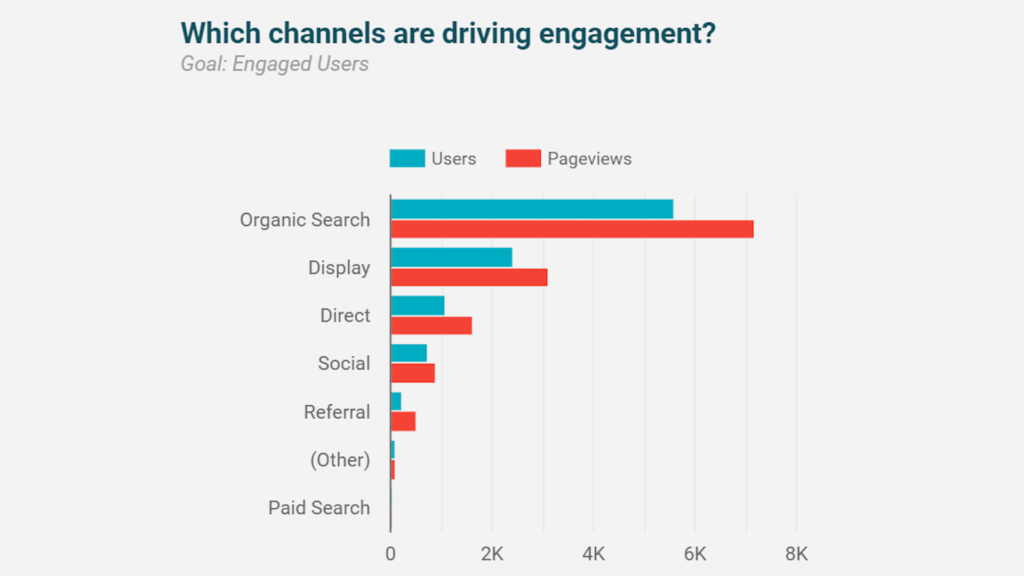In the dynamic world of search engine optimization (SEO), measuring success is crucial to understanding the effectiveness of your efforts and identifying areas for improvement. While achieving higher rankings and increased organic traffic are the ultimate goals, it’s essential to delve deeper and analyze specific metrics to gain actionable insights. By tracking key SEO metrics, you can evaluate the impact of your strategies, make data-driven decisions, and optimize your website for better visibility and performance. In this article, we’ll explore some of the most important metrics to measure SEO success.
Organic Traffic:
Organic traffic refers to the number of visitors who arrive at your website through search engine results pages (SERPs) without clicking on paid advertisements. It is a fundamental metric for measuring SEO success. Analyzing organic traffic allows you to understand how well your website is ranking for relevant keywords and how effective your optimization efforts are in attracting visitors from search engines. Tools like Google Analytics provide valuable insights into organic traffic trends, enabling you to track changes over time and identify potential areas of improvement.

Keyword Rankings:
Monitoring your keyword rankings is vital to assessing your SEO progress. By tracking the positions of your target keywords in search engine results, you can determine whether your optimization efforts are paying off. Tools like SEMrush, Ahrefs, and Moz allow you to track keyword rankings and provide valuable data on your website’s visibility. By regularly monitoring keyword rankings, you can identify opportunities to optimize further for high-value keywords or adjust your strategy for underperforming ones.

Click-Through Rate (CTR):
Click-through rate (CTR) measures the percentage of users who click on your website’s link when it appears in search results. A high CTR indicates that your website’s title and meta description are compelling and relevant to users’ search queries. A low CTR may suggest that your website’s snippets are not enticing enough or that your content needs improvement. By analyzing CTR data, you can refine your meta tags, experiment with different calls-to-action, and ultimately increase the click-through rate to drive more organic traffic.
Bounce Rate:
Bounce rate refers to the percentage of visitors who leave your website after viewing only one page. It is a crucial metric for measuring user engagement and the relevance of your content. A high bounce rate could indicate that visitors are not finding what they’re looking for or that your website’s design or usability needs improvement. Analyzing bounce rate data can help you identify pages with high bounce rates and take measures to improve the user experience, such as enhancing content quality, optimizing page load speed, or improving navigation.
Conversion Rate:
Conversion rate measures the percentage of visitors who complete a desired action on your website, such as making a purchase, filling out a form, or subscribing to a newsletter. While SEO primarily focuses on driving organic traffic, it’s essential to analyze how that traffic translates into tangible results. By tracking conversion rates, you can evaluate the effectiveness of your website’s conversion funnel and identify opportunities for optimization. Additionally, setting up goals and conversion tracking in Google Analytics can provide detailed insights into user behavior and help you measure the impact of specific SEO campaigns.
Backlinks:
Backlinks are links from external websites that point to your site. They play a crucial role in SEO, indicating the authority and relevance of your content. Tracking and analyzing your backlink profile is essential for understanding your website’s link-building efforts. Tools like Majestic, Ahrefs, and Moz provide insights into the number, quality, and diversity of your backlinks. By monitoring backlinks, you can identify opportunities for acquiring new links, disavow harmful or spammy links, and assess the overall health and authority of your website.
Measuring SEO success is an ongoing process that requires diligent tracking and analysis of key metrics. By monitoring organic traffic, keyword rankings, CTR, bounce rate, conversion rate, and backlinks, you can gain valuable insights into the effectiveness of your SEO efforts. These metrics help you identify areas for improvement, optimize your website for better visibility and engagement, and ultimately drive more organic traffic and conversions. By staying informed about the latest SEO trends and leveraging the right tools, you can continually refine your strategy and achieve long-term success in the ever-evolving world of search engine optimization.

